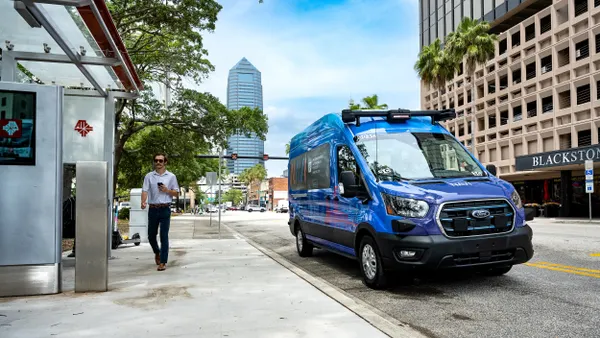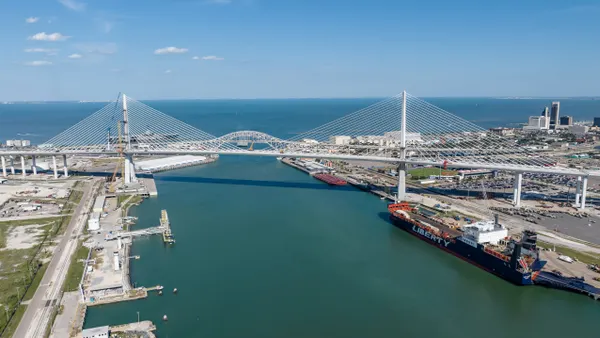Dive Brief:
- Chicago's Metropolitan Planning Commission (MPC) released a report, Transit Means Business, indicating that transit attracts and retain jobs in the area, and greater infrastructure investments therefore are necessary for the city to retain a competitive advantage.
- The MPC report states that businesses are choosing to locate near transit to access labor pools, locating near transit offers businesses greater resiliency and transit-accessible neighborhoods — especially near rail — outperform the regional job growth average. Last year, 85% of all commercial construction in Chicago occurred within half a mile or less of an "L" rail station or a commuter rail station.
- The report offered case studies from the Chicago area and also cited research from other metropolitan areas — including San Francisco and the Twin Cities — showing that transit boosts a city's economic development. It cited research indicating that transit investments have a minimum of 21% expected return on investment, although some showed a 200% ROI.
Dive Insight:
Chicago leaders boasted a big win this summer when McDonald's moved back into the city after having been in the suburb of Oak Brook, IL for nearly 50 years. McDonald's, one of MPC's case studies in the report, said it made the move to better attract top talent and it felt too removed from the action in the suburbs. The previous headquarters location was in a bit of a transit desert, only served by one commuter rail line. McDonald's tried providing shuttles to and from the line, but still it claimed trouble with attracting talent.
McDonald's now finds its headquarters in the Fulton Market neighborhood, a stone's throw away from a plethora of transit options, including bus, rail, commuter rail and regional train lines. It can more easily draw top talent from all parts of the Chicago metropolitan area. That part of Chicago that has been revitalized over the past decade to become a foodie and nightlife destination. A lot of millennials live and work nearby, and that's a prime demographic that McDonald's wants to attract, both as customers and employees. Google also relocated its Chicago operations to Fulton Market two years ago and the area is gaining recognition as a tech industry hub.
Besides attracting and retaining jobs — many of them high-paying — the MPC report notes that better transit cuts down the use of cars which reduces traffic, pollution and traffic-related deaths and injuries. It also lowers residents' transportation costs compared with driving, resulting in more disposable income. Those factors boost residents' quality of life in addition to making the city more desirable and efficient as a whole.
Mayor Rahm Emanuel has made transit investments a priority during his tenure and the city has made a slew of upgrades. In the past year alone, Chicago announced $5 million in upgrades on the two most popular bus corridors; launched a $33 million transit safety improvement initiative; announced a $2.3 billion rail extension on the busiest line; continues expanding its use of electric vehicles (EVs); and reportedly is considering expanding the bus rapid transit line that launched less than three years ago. The progress even gained accolades from The New York Times in an article explaining how Chicago became an example for other large cities by fixing its transit system.











